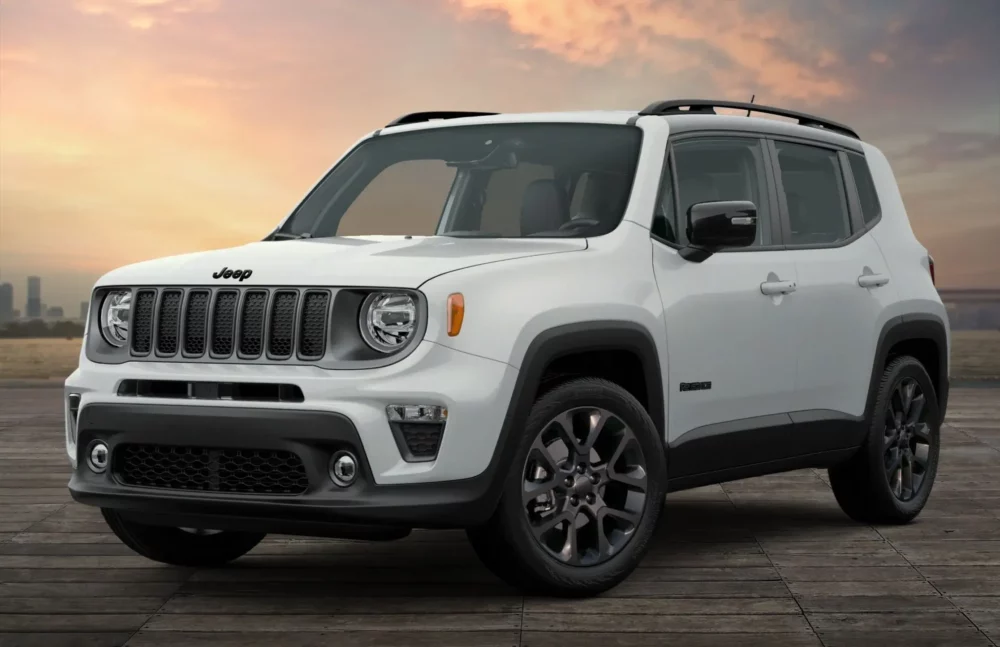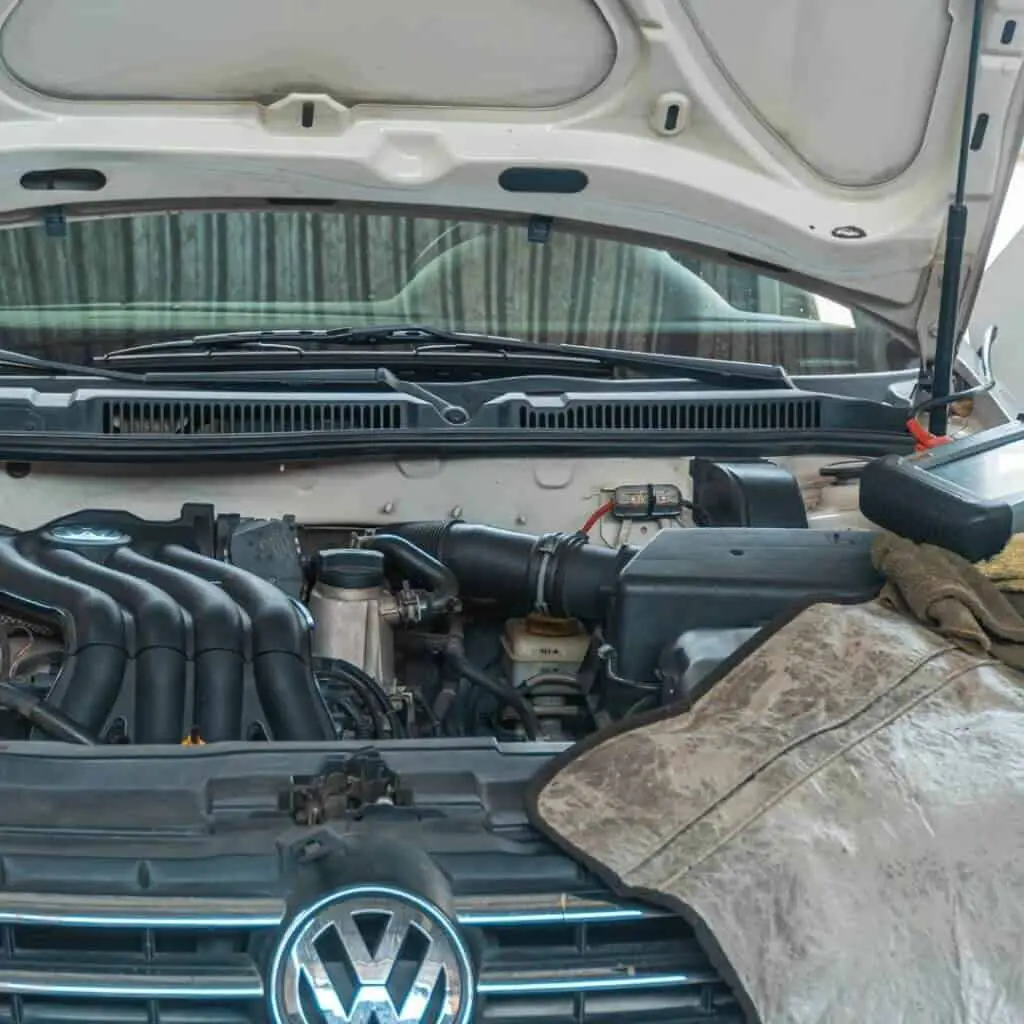Are you familiar with Jeep Renegade problems?
The Jeep Renegade is a small crossover SUV made by Stellantis under the Jeep brand. The Geneva Motor Show had the first public display of the Jeep Renegade in March 2014.
Production got underway in late August 2014. It is built on the same FCA Small Wide 4×4 chassis as other FCA cars, such as those from the Fiat and Alfa Romeo brands.
The Renegade comes with front-wheel drive as standard. It also comes with optional four-wheel drive Active Drive I and Active Drive Low systems, both of which are combined with Jeep’s Selec-Terrain System.
The 2023 model, however, came with a few adjustments. The biggest modification involves the removal of the front-wheel drive configuration in favor of an all-wheel drive design.
Additionally, the Sport trim level is no longer part of the lineup, making the Latitude the base model. The remaining modifications concern updates to equipment packages.
The Renegade models that preceded the 2022 Renegade have a few drawbacks. Transmission, engine, and electrical system problems are a few of the frequent complaints made by owners. Several recalls have been made concerning these problems [1].
According to CarComplaints , engine issues with the Jeep Renegade are generally the worst problem category. [2]
The 2015 Jeep Renegade has had the most general complaints. CarComplaints ranks 2015 as the worst model year based on several criteria, including repair costs and average mileage when issues arise. The 2018 Jeep Renegade’s excessive oil consumption is the most frequently mentioned issue.
Most Common Jeep Renegade Problems

- Engine Problems
The Jeep Renegade has been known to experience engine problems. These can include overheating, oil leaks, and other mechanical problems. The Jeep Renegade’s engine issues differ from model to model. However, the majority of drivers complain about stalling, excessive oil consumption, and other problems.
Under specific circumstances, Renegades with a 2.4-liter engine are prone to experience issues with the fuel pump unit. [3]
The Renegade will begin to stall once the fuel pump malfunctions. The vehicle will therefore require an overhaul or a new engine.
Owners should ensure their car is routinely serviced to look for any potential issues. Also, if warning lights show on the dashboard, they should seek professional assistance. It’s crucial to stick to the maintenance schedule recommended by the car’s manufacturer to ensure the engine operates properly.
Take your automobile to a repair right away if you have detected symptoms such as a drop in fuel efficiency, odd noises coming from the engine, or an increase in exhaust smoke.
Taking preventative actions is the best way to deal with Jeep Renegade engine issues. The following actions will assist in ensuring that your car operates smoothly and effectively.
- Regularly check the oil and other fluid levels.
- Uphold routine maintenance and make any required repairs as soon as possible.
- Check for signs of wear and tear on hoses, belts, and other parts.
- Observe the manufacturer’s advised maintenance regimen.
- Excessive Oil Consumption
Heavy oil consumption is a known problem with the Jeep Renegade. The 2.4L Tigershark 4-cylinder engine in the Jeep Renegade has a fault that some drivers complain that it uses too much engine oil. The 2.4L Renegade engine has a 5.5-quart oil capacity. Every 1,000 miles, this small SUV may need up to a quart of oil.
The problem is made worse by the possibility of an engine stall if the oil level is below 3.5 quarts. Oil levels would thus frequently drop without the low oil indicator light turning on. As a result, your Renegade’s engine is probably going to get damaged.
Excessive oil consumption can be brought on by several issues, including damaged piston rings, and valve stem seals [4]. If the car is using more oil than it should, there is probably a problem that has to be fixed right away.
However, according to experts, Renegade’s excessive engine oil consumption is the result of a design defect. They exclude the possibility of worn-out piston rings, which allow oil to leak past them and burn off during combustion.
Smoke from the exhaust, a burning smell inside the cabin, and lower-than-normal oil levels are typical indicators of heavy oil use. It’s crucial to get your Jeep Renegade checked out by a mechanic as soon as you notice any of these signs.
Here are a few fixes for the Jeep Renegade’s problem with heavy oil consumption:
- Make sure the oil is at the correct level.
- Have the engine checked for any signs of deterioration, such as damaged piston rings, and valve stem seals.
- Verify that all connections are tight and have the engine checked for leaks.
- Any engine parts that are worn out or damaged should be replaced.
- If necessary, have the engine tuned properly, and look for any other problems.
- Transmission Problems
One of the most frequent concerns of Jeep Renegade customers is transmission issues. According to numerous reports, these problems frequently appear soon after purchase and may be accompanied by a grinding noise or an abrupt jerking when shifting gears.
The transmission may occasionally slide out of gear, in which case the car won’t move. Owners may also observe hesitation when trying to accelerate their Jeep Renegade. The transmission causes automobiles to shake on the road or even make whistling noises . [5]
The Renegade comes with a nine-speed automatic transmission as standard. However, it still necessitates your searching for the right gear. Others feel the Renegade’s transmission to be rather lethargic, particularly if you want to access additional turbo power.
After technicians looked into the problem, they discovered that a loose connection was to blame for these transmission failures. They also believed there might be issues with the electrical system manufacture.
Jeep has fixed several transmission-related issues. To stop erroneous alerts, Jeep instructed technicians to modify the PCM [6] in Manufacturer Communication Number 18-118-16.
Unfortunately, transmission troubleshooting may be time-consuming and expensive. Therefore, the best course of action is to:
- Frequently maintain and check your Jeep Renegade for problems.
- Take it for a checkup immediately if you detect any weird noises or hesitation when accelerating.
- Check the transmission with a trained technician if a problem is detected.
- If a transmission problem is found, be ready to spend a lot of money on repairs.
- Electrical Problems
The Jeep Renegade frequently experiences electrical problems. Electrical difficulties can range in severity from simple inconveniences like a malfunctioning starting switch to more major concerns like broken power windows or significantly shorter battery life.
Some main electrical issues with the Renegade include multiple electrical failures and non-rotating engines. Other drivers complain about the occasionally broken infotainment system. [7]
Some automobile owners claim that their Renegade’s infotainment screen will suddenly go blank. They won’t be able to utilize driver assistance functions or play audio as a result. However, this is not a major issue.
Jeep owners who experience firmware problems can ask for a reset or an upgrade to resolve the infotainment issue. Here are some measures you may take to troubleshoot and resolve any electrical issues associated with your Jeep Renegade:
- Make sure no fuses have blown by inspecting them.
- Confirm that the battery is fully charged and that all connections are tight.
- Verify the functionality of each relay.
- Examine the wiring to make sure there are no frayed or damaged wires.
- Have your Jeep Renegade looked over by a mechanic to check for any unnoticed potential problems.
Related: Jeep Compass Problems
- Suspension Problems
The suspension system of the Jeep Renegade has consistently caused problems for owners, especially in the early model years between 2014 and 2017. A worn-out or misaligned suspension component can generate excessive bouncing and vibration, which can make driving conditions hazardous.
Jeep recalled the Jeep Renegade to address a rear suspension problem. Fortunately, suspension issues may frequently be resolved with a few easy steps. The following are some potential remedies:
- Have the suspension examined and an alignment done by a qualified mechanic.
- Replace any worn-out or broken parts.
- Make sure the car has regular maintenance and that all of its components are adequately greased.
- Take preventive action by spending more on higher-quality components.
Read Also: Skoda Yeti Problems
Conclusion
The Jeep Renegade is a tiny SUV that is practical, affordable, and effective. It is frequently chosen because of its adaptability, toughness, and wide range of driver-assistance features.
Over the years, the Jeep Renegade has experienced its fair share of problems, and some models should be avoided if one is searching for a dependable vehicle. While certain model years have garnered positive feedback from motorists, others have had electrical issues, engine problems, suspension problems, and gearbox issues.
All of these problems can have disastrous effects on the longevity of the vehicle. Therefore, do your study and stay away from the affected model years of the Renegade to guarantee that you avoid any potential future hassles.
Read Next: G Wagon Years To Avoid





